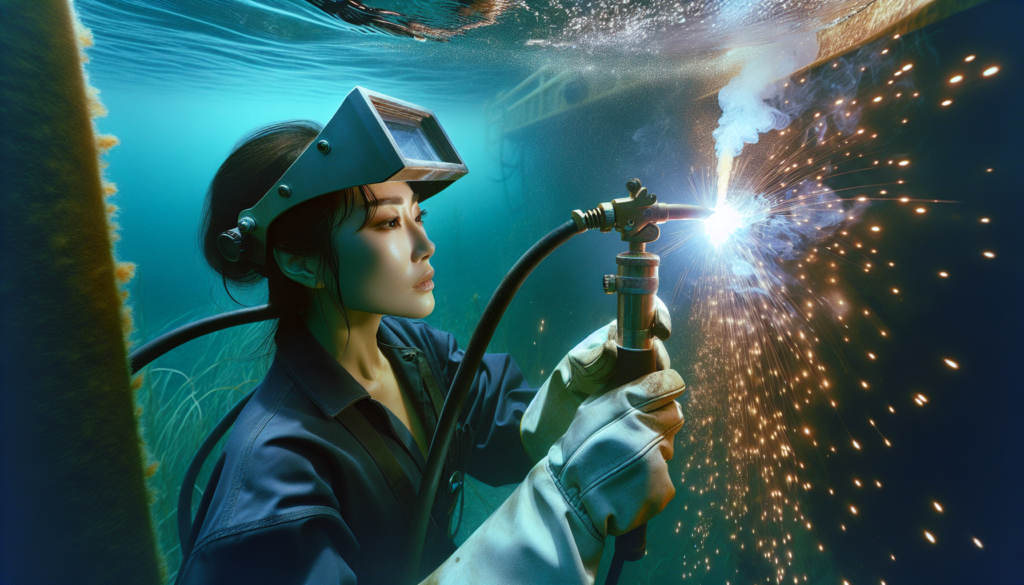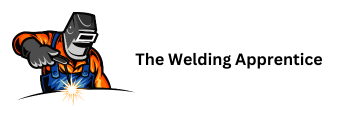Have you ever wondered about the exciting and well-paying field of underwater welding? This captivating industry combines the skills of welding with the thrill of being submerged in the depths of the ocean. Not only does underwater welding require technical expertise, but it also offers lucrative salary opportunities for those willing to take the plunge. Let’s explore the fascinating world of salary underwater welding and uncover the rewards that await those who are brave enough to pursue this underwater profession.
What is Underwater Welding?
Underwater welding is a unique and specialized method of welding that involves joining metal components underwater. It is a challenging and exciting career that requires both welding skills and diving expertise. Underwater welders work in various marine environments, such as offshore oil rigs, underwater pipelines, and shipyards, to perform complex welding tasks beneath the surface of the water.
Definition
Underwater welding, also known as hyperbaric welding, is the process of welding two pieces of metal together underwater. It is a combination of welding and diving, making it a highly demanding and physically intense job. Underwater welders must be proficient in both welding techniques and diving protocols to ensure safety and quality in their work.
Types of Underwater Welding
There are two main types of underwater welding: wet welding and dry welding. Wet welding, as the name suggests, is conducted directly in the water with the use of specialized welding equipment that operates even when submerged. Dry welding, on the other hand, involves creating a dry environment around the welding area by using a hyperbaric chamber. This allows the welder to work in a more controlled environment, free from the limitations and risks associated with wet welding.
Importance of Underwater Welding
Underwater welding plays a vital role in various critical applications and is essential for fulfilling industrial requirements.
Critical Applications
Underwater welding is crucial for repairing and maintaining underwater structures such as offshore oil platforms, underwater pipelines, and ship hulls. These structures are exposed to harsh marine conditions, and regular welding maintenance is necessary to ensure their structural integrity. Underwater welders also contribute to the repair and restoration of sunken vessels, providing a valuable service in salvaging operations.
Industrial Requirements
The offshore oil and gas industry heavily relies on underwater welding for constructing and maintaining offshore drilling platforms. Additionally, underwater welding is essential in the construction of underwater infrastructures, such as bridges, dam gates, and pier supports. Industrial sectors such as marine construction, shipbuilding, and underwater engineering heavily depend on the expertise of underwater welders to carry out their projects successfully.

Training and Certification
To become a proficient underwater welder, proper training and certification are essential.
Underwater Welding Courses
Several institutions and training centers offer specialized underwater welding courses. These courses provide a comprehensive understanding of both welding techniques and diving skills. Students learn about the different types of underwater welding, safety protocols, equipment operation, and dive planning. Practical sessions are also conducted, enabling students to gain hands-on experience in underwater welding.
Certification and Licenses
Obtaining certification and licenses is crucial for establishing credibility and ensuring job opportunities in the field of underwater welding. Various organizations provide certifications and licenses that validate the skills and competence of an underwater welder. These certifications typically involve a combination of practical exams, written tests, and diving assessments. Receiving these credentials demonstrates a welder’s proficiency and adherence to industry standards.
Factors Affecting Salary
Several factors influence the salary of underwater welders. Understanding these factors is essential when considering a career in this field.
Experience
Experience is a significant factor in determining an underwater welder’s salary. As with many other professions, the more experience a welder has, the higher their earning potential. Experienced underwater welders have honed their skills, developed efficiency, and gained a reputation within the industry, allowing them to command higher salaries.
Education and Credentials
Education and credentials also play a role in salary determinations. Underwater welders who have completed specialized courses and obtained relevant certifications are more likely to receive higher compensation. Employers value the knowledge and expertise obtained through proper training, and it positively impacts a welder’s earning potential.
Specialized Skills
Underwater welders who possess specialized skills beyond basic welding techniques may receive higher salaries. Skills such as inspection, cutting and burning, and construction in underwater environments are highly sought after. Welders who are proficient in these additional skills can perform a wider range of tasks and contribute more significantly to project completion, leading to increased salary opportunities.
Location
The location where an underwater welder is employed can significantly impact their salary. Wages vary based on the region, cost of living, and demand for underwater welding services. Areas with high offshore activity or a significant underwater construction industry often have higher salary ranges for underwater welders.

Average Salary of Underwater Welders
The average salary of underwater welders is influenced by factors such as industry, location, experience, and certifications.
National Averages
The national average salary for underwater welders in the United States is around $54,000 per year. However, this figure can vary significantly depending on the factors mentioned above. Entry-level positions may start at lower salaries, while experienced and highly skilled underwater welders can earn above-average salaries.
Variations by Industry
The industry in which an underwater welder works can impact their salary. For example, underwater welders in the offshore oil and gas industry tend to earn higher salaries due to the demanding nature of the work and the associated risks. Other industries, such as marine construction, salvage operations, and underwater engineering, also offer competitive salaries for skilled underwater welders.
Factors that Influence Salaries
In addition to industry considerations, other factors that influence underwater welders’ salaries include the complexity of the projects, the length of contracts, and the level of expertise required. In some cases, underwater welders may also receive bonuses or hazard pay for working in challenging environments or high-risk situations.
Career Advancement and Development
Underwater welding offers opportunities for career advancement and development through gaining experience, upskilling, and becoming a dive supervisor.
Gaining Experience
One of the primary ways to advance in the field of underwater welding is by gaining experience. As welders accumulate more hours and projects under their belt, they develop a deeper understanding of the craft and hone their skills. Experience opens up opportunities for more challenging and higher-paying projects, and it also helps establish a welder’s reputation within the industry.
Upskilling and Specialization
Underwater welders can enhance their career prospects by investing in additional training and upskilling. Specializing in areas such as inspection, cutting and burning, or construction in underwater environments can broaden the range of job opportunities available. By acquiring these specialized skills, welders can command a higher salary and become more valuable to employers.
Becoming a Dive Supervisor
Another milestone in the career of an underwater welder is transitioning into a dive supervisor role. Dive supervisors are responsible for overseeing diving operations, ensuring safety protocols are followed, and managing a team of diving professionals. This progression requires not only excellent welding and diving skills but also leadership and communication abilities. Dive supervisors typically have higher earning potential and increased job responsibilities.
Challenges and Risks of Underwater Welding
While underwater welding can be a rewarding career, it also presents challenges and risks that must be considered.
Physical Demands
Underwater welding is physically demanding and requires a high level of fitness. Welders must possess strength, endurance, and dexterity to perform welding tasks in often challenging underwater conditions. The gear and equipment used can be cumbersome, and the pressure of working underwater adds an additional level of physical strain.
Diving and Decompression Risks
Diving carries its own set of risks, including decompression sickness (the bends) and nitrogen narcosis. Underwater welders must undergo rigorous training to mitigate these risks and follow appropriate dive tables and protocols. Chronic exposure to high-pressure environments can also lead to long-term health implications that must be carefully managed.
Environmental Hazards
Underwater welding exposes welders to various environmental hazards. These hazards can include toxic substances in the water, extreme temperatures, limited visibility, and unpredictable marine life encounters. Welders must be vigilant and take necessary precautions to ensure their safety and avoid accidents.
Job Opportunities
Underwater welding offers a wide range of job opportunities both inshore and offshore.
Inshore and Offshore Projects
Underwater welders are needed for both inshore and offshore projects. Inshore projects typically involve working in lakes, rivers, and harbors, while offshore projects typically occur in open waters and include tasks such as oil platform maintenance and construction. This variety of job locations provides diversity and flexibility for underwater welders, allowing them to choose the type of environment they prefer to work in.
Diverse Industries
Underwater welding is required in various industries, making it a versatile career choice. Industries such as offshore oil and gas, marine construction, underwater engineering, and shipbuilding all rely on the expertise of underwater welders. With the continuous demand for underwater maintenance and repairs, job opportunities in these industries are likely to remain abundant.
Alternative Careers in Underwater Welding
While underwater welding is a fascinating career, there are alternative paths within the same field for those who prefer different roles.
Underwater Inspection
Underwater inspection is a specialized career that involves conducting inspections of underwater structures for maintenance and repairs. Inspectors assess the integrity of underwater infrastructure, identify potential issues, and provide recommendations for repairs. This career path may be suitable for individuals who have a passion for underwater work but prefer a less physically demanding role compared to welding.
Underwater Cutting and Burning
Underwater cutting and burning is a niche area within underwater welding. This field focuses on using specialized equipment and techniques to cut and remove materials underwater. Underwater cutters and burners work hand in hand with underwater welders to perform tasks that require the removal of damaged or corroded sections of structures. This career option allows individuals to specialize in a specific aspect of underwater work.
Underwater Construction
Underwater construction involves building structures and installing components in underwater environments. Underwater construction professionals work on projects such as underwater bridges, dams, and pier supports. This career path requires a combination of welding skills, diving expertise, and an understanding of engineering principles. It provides an opportunity to be part of innovative projects and contribute to the development of underwater infrastructure.
Conclusion
Underwater welding is a unique and rewarding career that combines the skills of welding and diving. This specialized field is vital for maintaining and repairing underwater structures in various industries. With proper training, certification, and experience, underwater welders can earn competitive salaries and pursue opportunities for career advancement. While the job presents challenges and risks, the demand for skilled underwater welders continues to grow, offering a wide range of job opportunities both inshore and offshore. For those seeking an exciting and dynamic career that allows them to work beneath the waves, underwater welding is an excellent choice.
